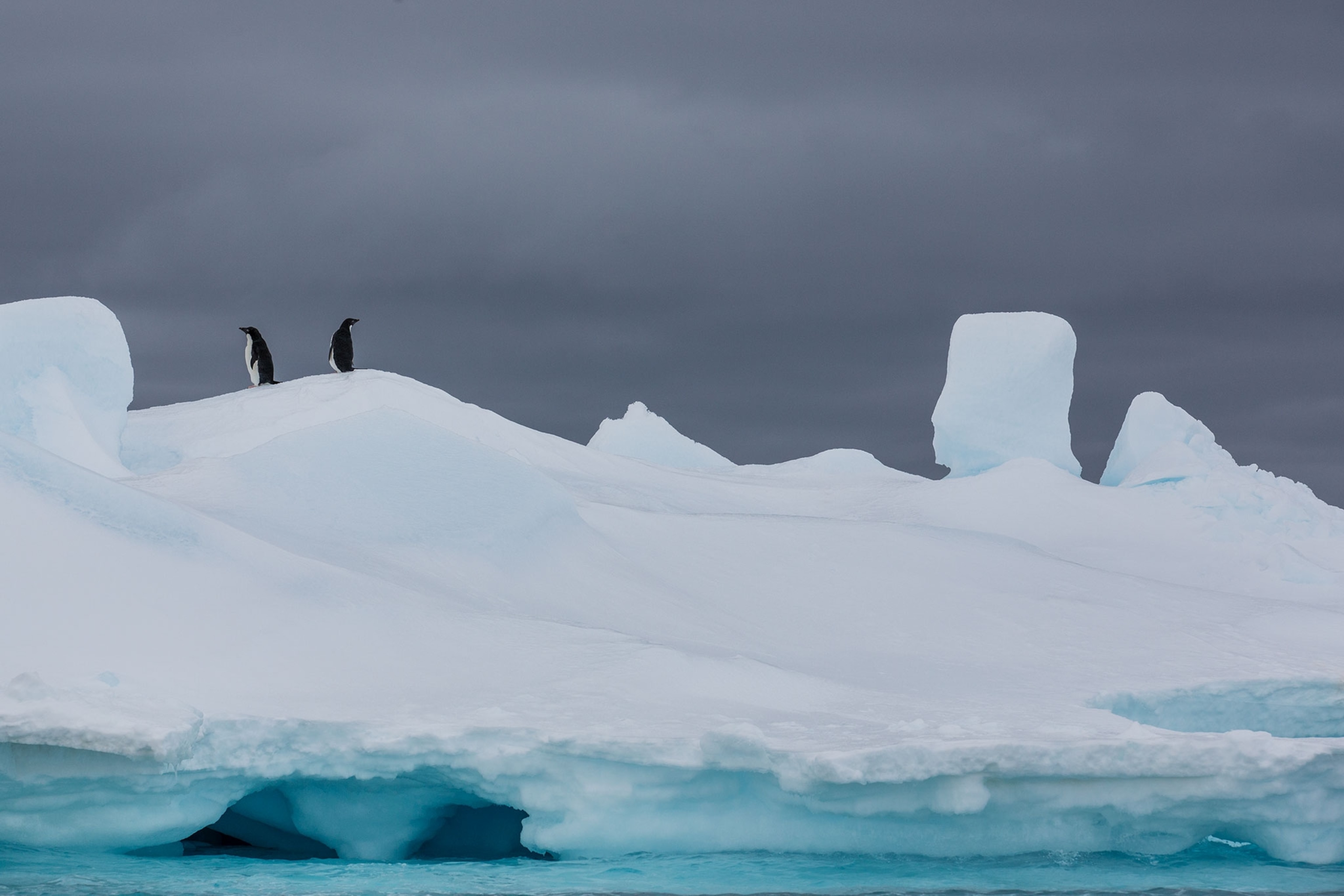
Antarctica’s Sea Ice Shrinks to New Record Low
The latest daily figures may confirm a disturbing trend in global melting.
Sea ice in Antarctica has hit a worrisome milestone, reaching its lowest recorded extent this week, according to data from the U.S. National Snow and Ice Data Center. The daily ice area recorded on Tuesday represents an all-time low: 2.25 million square kilometers (872,204 square miles).
While Arctic sea ice has shown a relatively steady decline in square mileage over the past three decades as global temperatures rise (see for yourself), its southern counterpart has yielded more erratic and controversial data since monitoring began in the late 1970s. The February 14 mark for Antarctic sea ice surpasses lows seen around this time in 1997.
In 2012, Antarctic sea ice actually hit a record monthly high, with scientists theorizing that melting ice shelves were contributing to the growth. Since then, further evidence of Southern Hemisphere ice melt has accumulated, with recent dramatic photos showing aerial views of western Antarctic ice scored with cracks.
Melting ice at the Earth’s poles is yet another indicator of global warming and causes concern about attendant sea-level rise and other climate impacts. Though the timing and extent of those impacts are a matter of scientific debate, the trends lend urgency to countries’ efforts to curb the greenhouse gas emissions from coal and other fossil fuels that are contributing to a warmer climate.
NSIDC Director Mark Serreze told Reuters that the new numbers were preliminary and still needed to be confirmed, but that “unless something funny happens, we’re looking at a record minimum in Antarctica.”
The NSIDC reported at the end of last year that both Arctic and Antarctic sea ice had hit record monthly lows in November: “For the globe as a whole, sea ice cover was exceptionally low,” it said.
On Twitter: Follow Christina Nunez.